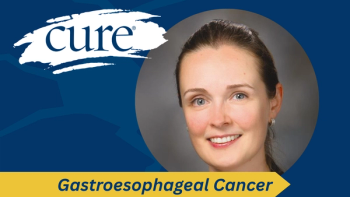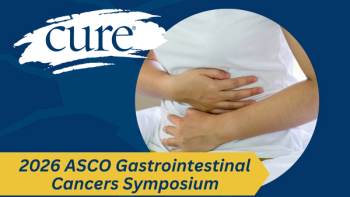
Being a 'FORCE' In Hereditary Cancers for 18 Years: An Interview with Executive Director Sue Friedman
Sue Friedman, executive director and founder of FORCE, is a hereditary breast cancer survivor herself and has been concentrating on being the support system for others that she didn’t have when she was going through her battle 20 years ago.
Do you know what’s in your genes? They can play an important role in understanding cancer — and even treating it. All cancers are caused by changes to genes, and for some people, they are born with a specific gene mutation that they inherited from their mother or father. And that mutation means they have a 50 percent chance of passing it onto their children.
For 18 years, the nonprofit organization Facing Our Risk of Cancer Empowered, more commonly known as FORCE, has been dedicated to working with individuals and families affected by hereditary cancers, specifically breast and ovarian.
By offering peer-to-peer support, message boards, support groups, among many other resources, FORCE hopes to empower patients through their cancer journey and make informed medical decisions.
Sue Friedman, executive director and founder of FORCE, is a hereditary breast cancer survivor herself and has been concentrating on being the support system for others that she didn’t have when she was going through her battle 20 years ago.
Tell me a little bit about this year's conference and what you plan to focus on.
In an interview with CURE during FORCE’s 10th Annual Conference underway in Orlando, Florida, Friedman highlighted some of the expanding projects they are working on.We have our peer navigation program that is now in its second year, and we are expanding it. Currently, we have over 200 volunteers. We connect people one-on-one to someone who has faced a similar experience to them. We match people by, if we can, mutation status — and not just BRCA1 and BRCA2 but also ATM, PTEN and PALB2.
We’re starting to see some people who have had expanded gene testing and want to talk to someone with the same mutation.
We also match them by cancer survivor to cancer survivor, previvor to previvor, because as you know the decisions that people have to make differ, depending on what their experience is, whether they had cancer or if they are high-risk.
In addition, we received a grant from Celgene, as a recipient of their 2016 Innovation Impact Award — to expand peer navigation into rural communities, and we call it Project Plural.
Our CDC-funded XRAYS program helps people understand what’s behind the cancer headlines. What does the new, emerging science mean for them? How relevant is it? Is it something that is going to change their medical decision making now or is it something that will take another decade before we actually see the fruits of this research?
Getting more participants involved in clinical trials research is so important. We have a somewhat hard-to-reach community and there are clinical trials trying to enroll people with hereditary cancer. We want to make sure people are aware of those opportunities so we can move the science forward. There were a couple of exciting things at the 2017 American Society of Clinical Oncology (ASCO) Annual Meeting, one of which was the results of the OlympiAD trial, which is the first registration trial for a PARP inhibitor in breast cancer to finish and report out. We were a part of the recruitment effort for it, so it is exciting for us to let our community know what we just learned at ASCO.
Karen Lu, M.D., of MD Anderson Cancer Center in Houston, will be talking about a prevention study that she is a part of where they are looking at whether we can lower the risk of ovarian cancer in high-risk women by removing the fallopian tubes only as an interim procedure until women get closer to menopause, so that they don’t have to undergo surgical menopause at such a young age.
There also are our support programs such as coping with cancer and how to talk to your family about the hereditary cancer in your family. We also have a focus on men. There is this emerging awareness that BRCA1 and BRCA2, and some of the other gene mutations, too, are associated with pancreatic cancer, which is men and women, and prostate cancer.
I personally lost my father to metastatic prostate cancer. There is this general feeling that prostate cancer is slow growing and that we don’t have to treat or that we might be over-treating, but there is this group of men who are very vulnerable to a much more aggressive cancer. So, we want to make sure we are giving them good information because there is a real, big disparity in genetic testing in men versus women, and even in insurance coverage in genetic counseling in men versus women.
We have our Show & Tell room where people can look around and talk to other women who have had mastectomies with and without reconstruction. This is probably the largest place for women post-mastectomy to share with other women who are considering this surgery.
Could you expand on why having a program like XRAYS is so important?
This is our 10th year and one of the things we are seeing, especially in the last few years, are people coming and bringing their children who are now adults and are facing some of the decisions that they had to face. They know FORCE. We have been around for 18 years and they trust us.XRAYS came out of our own experiences. We wrote the grant based on the fact that we would see an article in the media — or read it during social media listening — that would come out and maybe they didn’t quite get it right, or it was important research, but wasn’t in the right context. One of our goals is to help people make informed medical decisions along with their health care provider in what we call shared decision making.
What are some of FORCE's other priorities?
Sometimes that is hard to do when there is a lot of hype with an article in the media that wasn’t quite right or a celebrity quotes something that they didn’t get right because they’re not health care providers, but they still have a lot of sway with the community because people know and trust them. There is a lot of promising research out there that’s very early and very exciting and we want our community to know about it.We have a big focus on advocacy. There is a lot of uncertainty around what is going to happen with health care. There have been some concerns about potential changes to the Genetic Information Nondiscrimination Act, and so again we are trying to make sure that are community knows the latest information and what’s going on right now.
We have a lot of new people attending this year, who are just starting their hereditary experience. So, we are excited to help them with a whole wealth of resources that they can tap into. Nobody has to face their journey alone.



